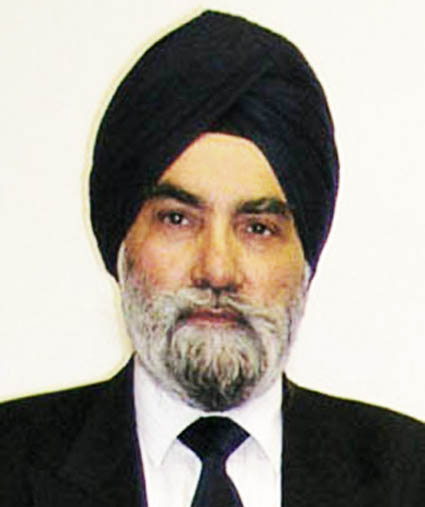Sri Akal Takht Sahib Hukamnama is Not Negotiable

On 2 December 2024, the voice from the Fasil of Sri Akal Takht was that of the Jathedar however, the Hukamnama (command or edict) was from the Guru. This followed Gurmat-based deliberations of the Five Singh Sahibaan. The global Sangat, Sikhs and non-Sikhs, watched the proceedings unique to Sikh tradition, in wonderment. Little doubt was left that the Institution of Sri Akal Takht Sahib is supreme in Sikh psyche.
The Hukamnama followed confessions by those who had been in successive Panjab governments led by late S Parkash Singh Badal and his son, Sukhbir Singh Badal. In Sikh tradition, the Hukamnama is immutable and unchangeable. It was accepted by the global Sangat as the verdict of the Highest Sikh Court of the Guru. It mattered not what sort of games the Akali politicians standing before te Takht were allegedly playing. The Guru had spoken in Sangat and there was a global Panthic wave of elation and Chardhi Kalaa.
Let us remind ourselves of what Sri Akal Takht means for the global Sikh community, the Panth. The embryonic concept of Miri-Piri (temporal-spiritual twin-track sovereignty) is foundational in Sikhi. From Guru Nanak Sahib through the Ten Guru-persons to Sri Guru Granth Sahib, the Sikhs refer to the Guru as the Sacha Patshah (True King). Sikhs do not accept any religious or temporal (political) authority above the Sacha Patshah.
The Mughal emperors took exception to such exalted position of the Guru in Sikh tradition. The Sikhs paid daswandh towards Sikh theo-social and,later, political objectives of the Guru to create a just and sharing society. The egalitarian teachings of the Guru were opposed to prevailing oppression of Muslim and Hindu rulers. The displeasure of Mughal emperors resulted in the martyrdoms of Guru Arjan Sahib and Guru Tegh Bahadur. So, Sri Akal Takht Sahib as the Takht of the Guru, evolved as the primary seat of Sikh religio-political authority. It became more visible from the time of Guru Hargobind Sahib. Scholarly arguments opposing the authority of the Takht, miss these basic points sometimes..
The Takht issues hukamnamas or edicts in the best interest of the Sikh nation which provide guidance or clarification on any point of Sikh doctrine or practice referred to it. Wrong-doings are punished in accordance with Sikhi tradition. So, the Takht issues guidance regarding all spheres of life, religious, social and political. The Sikh tradition is that no temporal law can have jurisdiction over Sri Akal Takht Sahib.
Sri Akal Takht Sahib held the Badals and several senior party leaders guilty of misconduct over issues concerning the community. Immense harm had been done to Panthic interests during their 10-year rule in Punjab from 2007-17 and earlier. The Hukamnama was clear. Yet, later the party leaders had second thoughts. They maintained that the Party was registered as a secular party with the Election Commission and could not take directions from a religious body. That due to legal issues involving the constitution of the party, it could not accept the panel set up by the Takht for reorganisation. In short, as the Panjabi saying goes, Mann harami, hujtan dher. They were not sincere in their confessions before the Takht. They have been looking for excuses to remain in power. However, the Guru and the Sangat see through such falsehoods prevarications.
Despite some delay and confusion, Jathedar Sri Akal Takht Sahib has now clarified that the Hukamnama of the Guru in Sangat, is not subject to negotiation.
Gurmukh Singh OBE
Principal Civil Servant retd (UK)